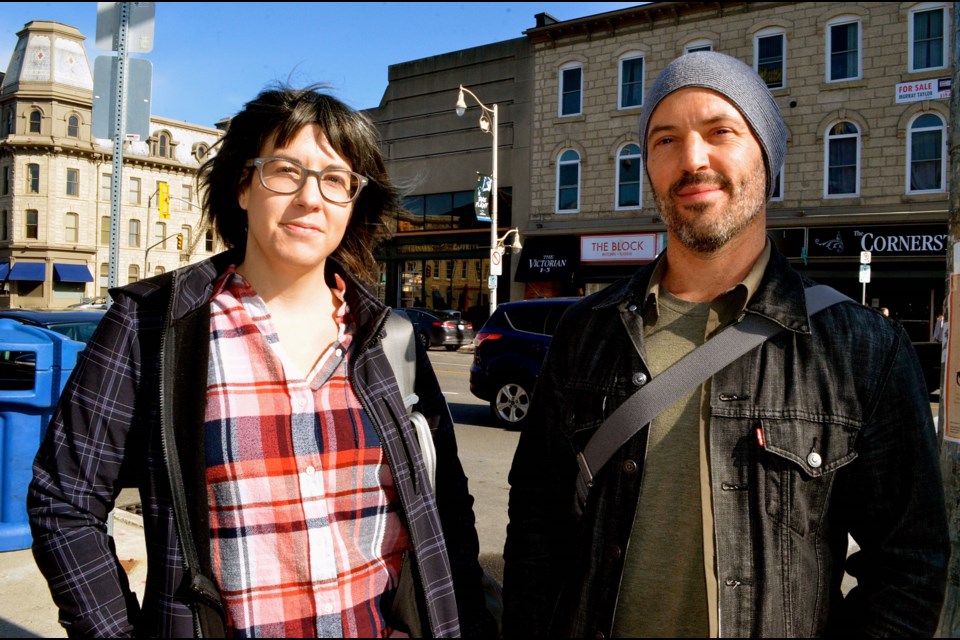Documentary filmmaking has not typically been a lucrative venture, but that is changing with the help of the National Film Board and the growing popularity of documentary film festivals such as Hot Docs and The Guelph Film Festival.
“It is so much better now for documentary filmmakers than it was 10 years ago when I sold my documentary to CBC.” said Kimber Sider, artistic director for the Guelph Film Festival. “You will never make the kind of money you might make in other areas but the NFB’s primary focus is unconventional documentaries. The fact that we have that resource here is huge.”
The Guelph Film Festival has been an enduring forum for the genre for more than three decades and is screening 28 documentaries this year at nine venues throughout the city from Nov. 1 to Nov. 9.
“The Guelph Film Festival has been running in various incarnations since the 80s,” said operations director Nathan Lawr.
“It is one of the longest running strictly-documentary film festivals in Canada. We have three thematic programming pillars; social justice, the environment and community building, which can be construed fairly broadly but we do our best to present stories that you are not necessarily going to find at other film festivals or in the mainstream.”
Another criteria of films in the festival is that they be 50 per cent Canadian and 50 per cent women or woman identifying directed and/or produced.
The festival started in 1984 as a presentation of the Guelph International Resource Centre with a focus on third cinema documentaries, a style that rose from the anti-colonial and anti-capitalist political movements in Latin America during the 1960s and 1970s.
“GIRC had an international film festival and they would show films based on this theory of film called third cinema, where the subject has some agency in the telling of the film,” said Lawr. “It is more of a theoretical approach and that is how they started out.”
The third cinema format is no longer a criteria for the films they promote but the concept is reflected in documentaries such as the festival’s opening film Conviction, that chronicles the experiences of women during and after spending time in prison.
“The women in the institute take control of the camera and film themselves every time they leave and have some control over how they are depicted,” said Sider. “Whenever they screen it, they bring in women with lived experiences in incarceration to speak.”
Conviction is being screened tonight at the Drop In Centre and will feature speaker Emily O’Brien who served time at the Grand River Institute for Woman and later started a popcorn company called Cons and Kernels.
“It’s our opening night film and Teresa MacInnes the filmmaker will be flying in from Nova Scotia to be here for the screening,” said Sider. “She will also be giving one of the talks at our docs symposium.”
The First Annual Doc-Making Symposium at the Art Gallery of Guelph is presented by Ed Video: Media Arts Centre and Earth To Table: Bread Bar and offers workshops led by established film directors and producers.
“There will be three 90-minute workshops at a ridiculously-low price $35 or $45 depending if you are an Ed Video member and they will get to meet these people in small sessions,” said Sider. “We want to bring more of that in because, from what Ed Video says a lot of their members aren’t making docs but a lot of them want to. So, how do we support that as well.”
Guelph documentary filmmaker Erin MacIndoe Sproule has experience working for the CBC as well as the Discovery and History Channels but has decided to focus more on her passion for making small independent films.
“A huge part of the festival’s mandate is to support artists that don’t always fit into the majority of filmmakers out there,” said Sproule. “There are a lot of women in documentary film making but it is still male dominated.”
Sproule’s film Providence is screening Nov 2 at the Guelph Civic Museum with four other short films as part of the Short Series: Ecologies of Community.
The documentary features the relationship between people and landscapes dominated by wind turbines and was filmed at windfarms in Ontario and Scotland.
“I wanted to take a non-politicized approach to looking at them because that wasn’t what was interesting to me,” she said. “I was definitely not 100 per cent shielded from some of those political arguments through the course of making the documentary but I really wanted to document this moment in time when we are seeing this really profound change on the landscapes in these really rural areas.”
Another film with a strong Guelph connection is Sovereign Soil, which will be making its world premier Nov 3 at the Thornbrough Building at the University of Guelph.
“The producer Andrew Connors is from here and went to high school here,” said Lawr. “He has been living in the Yukon for 25 years and the film is about people in Dawson City, Yukon farming all year round. The filmmakers are flying in from the Yukon to be here for it and it is the first time they will see their film on the big screen.”
There are so many films to choose from and Sider and Lawr were reluctant to pick favourites.
“I like them all,” said Sider. “I always look for the film I didn’t expect that has something we maybe haven’t talked about in previous years.”
To learn more about the festival, the films and the screenings visit www.guelphfilmfestival.ca



